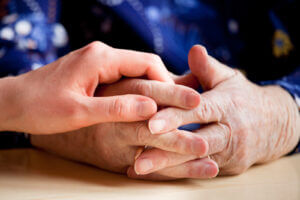Personal Care At Home – Four Tips for Caring for Your Loved One with Parkinson’s
 Parkinson’s disease is a disorder that continues to get worse over time. It mainly affects older men and affects the nervous system and the parts of the body controlled by the nervous system. People who have it often start with a hand tremor that gradually becomes more widespread in the body, making movement difficult.
Parkinson’s disease is a disorder that continues to get worse over time. It mainly affects older men and affects the nervous system and the parts of the body controlled by the nervous system. People who have it often start with a hand tremor that gradually becomes more widespread in the body, making movement difficult.
If your loved one has Parkinson’s disease, some symptoms he may have is the inability to show much expression on his face, speech that is quiet or slurred, a stiff gait, and arms that no longer swing while walking.
Keeping your loved one safe while he manages this disease is paramount. While there is no cure, you can do things around the home to make sure your loved one stays safe and can maintain some of his independence. Here are several tips to help you and your loved one as he learns to live with the disease.
- Be patient. This applies to both you, the caregiver, and your loved one. Tasks that once were done without thought may take more time and effort for your loved one but in order to maintain independence and self-assurance, your loved one should be given the time needed to complete the task when he can. For example, brushing his teeth may take longer as he carefully puts the toothpaste on the toothbrush and then brushes his teeth. Allow extra time around personal care activities so he doesn’t feel rushed and then frustrated.
- Fall-proof your home. Because many Parkinson’s patients have a stiff gait, falling is more likely to occur. Reassess your home and make sure that anywhere your loved one walks, he can hold onto a wall, counter, or bar. When not possible, you might consider having an assistive device like a walker he can use. Your loved one may need help on stairs. Having someone like a personal care at home provider around to help navigate stairs when needed can reduce the risk of a fall.
- Get help for tasks he can no longer do. Activities like preparing a meal with a lot of prep (such as cutting) may not be possible. Having a personal care provider help with meals can make sure your loved one is still enjoying the foods he loves. A personal care at home provider can also help with personal needs such as shaving or nail trimming.
- Encourage exercise. Finding a program that caters to your loved one’s prognosis will help ensure he’s safe while keeping active. You can also help at home with walks and strength training so long as he has someone with him. Keeping active will help prevent muscles from atrophying, making his symptoms worse. It may take him longer to walk around the block, but the health benefits are worth the time it takes.
Your loved one’s abilities and needs will change as the disease progresses. Being ready to make the needed adjustments so he can continue to thrive will be part of the process.
If you or someone you know needs personal care at home in Fairhope, AL, please contact the friendly caregivers at Hughes Home Care. We provide quality and affordable care for your elderly loved ones in our community. Call Us Today at 251-517-9901. Serving Mobile & Baldwin County.
- Risk Factors that Increase the Likelihood of Heart Failure - April 11, 2025
- Is it Possible for Seniors to Eat 30 Plants a Week? - March 25, 2025
- Healthy Aging: Why Remaining Active Matters - March 7, 2025
